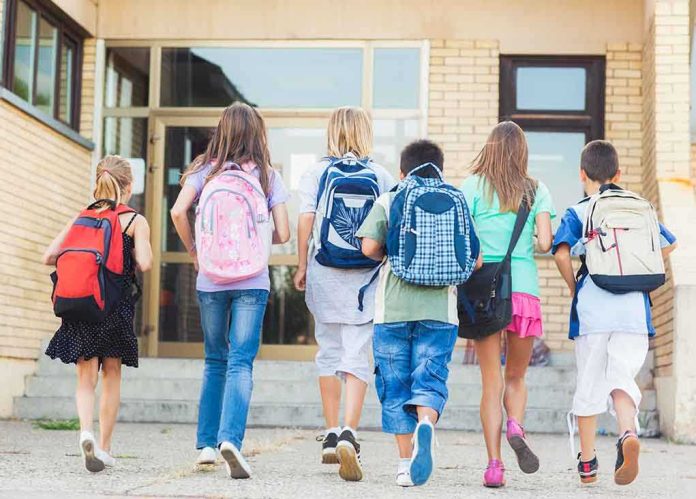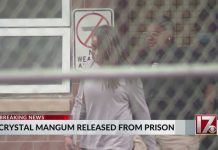
School surveillance companies are now tracking students 24/7—even on personal devices at home—raising urgent alarms about privacy, transparency, and government overreach.
Story Snapshot
- 86% of school safety tech companies monitor students around the clock, including after hours and off campus.
- Most companies provide little to no transparency about what data is collected or how it’s used.
- Parents, students, and privacy advocates are raising serious concerns about constitutional rights and family privacy.
- Calls are growing for stricter oversight and a return to local control, not corporate or bureaucratic surveillance.
School Surveillance: From Safety to 24/7 Intrusion
According to a peer-reviewed study from UC San Diego, an overwhelming 86% of school safety technology companies now monitor students nonstop—extending far beyond the classroom and into their personal lives at home. This surveillance is not limited to school-issued laptops; it often encompasses private devices, scanning everything from search histories to personal messages. The shift to remote learning during the pandemic jumpstarted this expansion, but many districts continued and even intensified these practices after schools reopened, citing safety, liability, and compliance concerns.
School administrators, eager to avoid lawsuits or tragedies, have signed contracts with third-party vendors who leverage artificial intelligence to flag threatening content, mental health risks, or inappropriate behavior. These companies operate largely behind closed doors, offering little public information about their algorithms, error rates, or data storage policies. As a result, families and local communities have little say in how, when, or why their children are being watched. Many parents feel blindsided upon discovering the scope of monitoring, often after their children’s private communications are flagged or reviewed by school authorities.
Transparency Gaps and the Erosion of Parental Rights
The recent UC San Diego study underscores a glaring lack of transparency across the industry. Most vendors refuse to disclose what information is gathered, how long it is stored, or who can access it. There is no uniform standard for oversight, no consistent process for parental notification, and little clarity on how errors or false positives are handled. These gaps create a situation where private companies, not parents or elected school boards, set the rules for monitoring children—sidestepping constitutional protections that should govern government surveillance and student rights.
Even more concerning, many districts have adopted these tools without full public debate or parental input, often relying on vague assurances from vendors about safety and effectiveness. This lack of transparency undermines parental authority and due process, raising the specter of government overreach into the private lives of families. For conservatives, who value local control and limited government, these developments represent a fundamental challenge to core American values.
Impact on Students, Families, and Constitutional Values
Families across the country are expressing concern that constant digital monitoring undermines trust between students and schools, chills free expression, and creates a climate of suspicion. Students—aware that every message and search could be scrutinized—may self-censor or withdraw from online engagement, fearing misinterpretation or reprisal. Privacy advocates warn this sets a dangerous precedent, normalizing surveillance and eroding constitutional protections for the next generation.
Some experts argue that 24/7 surveillance risks bias and overreach, with opaque algorithms potentially flagging innocent behavior or disproportionately targeting certain groups. Meanwhile, school districts, lacking technical expertise, often defer to company policies rather than establishing clear, community-driven standards. As public debate intensifies, calls are mounting for districts to restore transparency, strengthen parental rights, and ensure that any safety measures respect the Constitution and American family values.
Schools’ safety tools are spying on kids — even at home https://t.co/hiYweKdC9y
— ConservativeLibrarian (@ConserLibrarian) August 25, 2025
While proponents claim these tools are necessary for safety, the evidence remains mixed. The study’s authors urge further research into whether such monitoring truly prevents harm—or simply expands bureaucracy and corporate power at the expense of privacy. For conservative families, the choice is clear: safeguarding children must not come at the cost of surrendering individual liberty and parental authority. The time has come for local communities to reclaim control, demand transparency, and protect the rights that define our nation.
Sources:
Journal of Medical Internet Research article
California Department of Education and San Diego County Office of Education resources
UC San Diego press release and study summary



